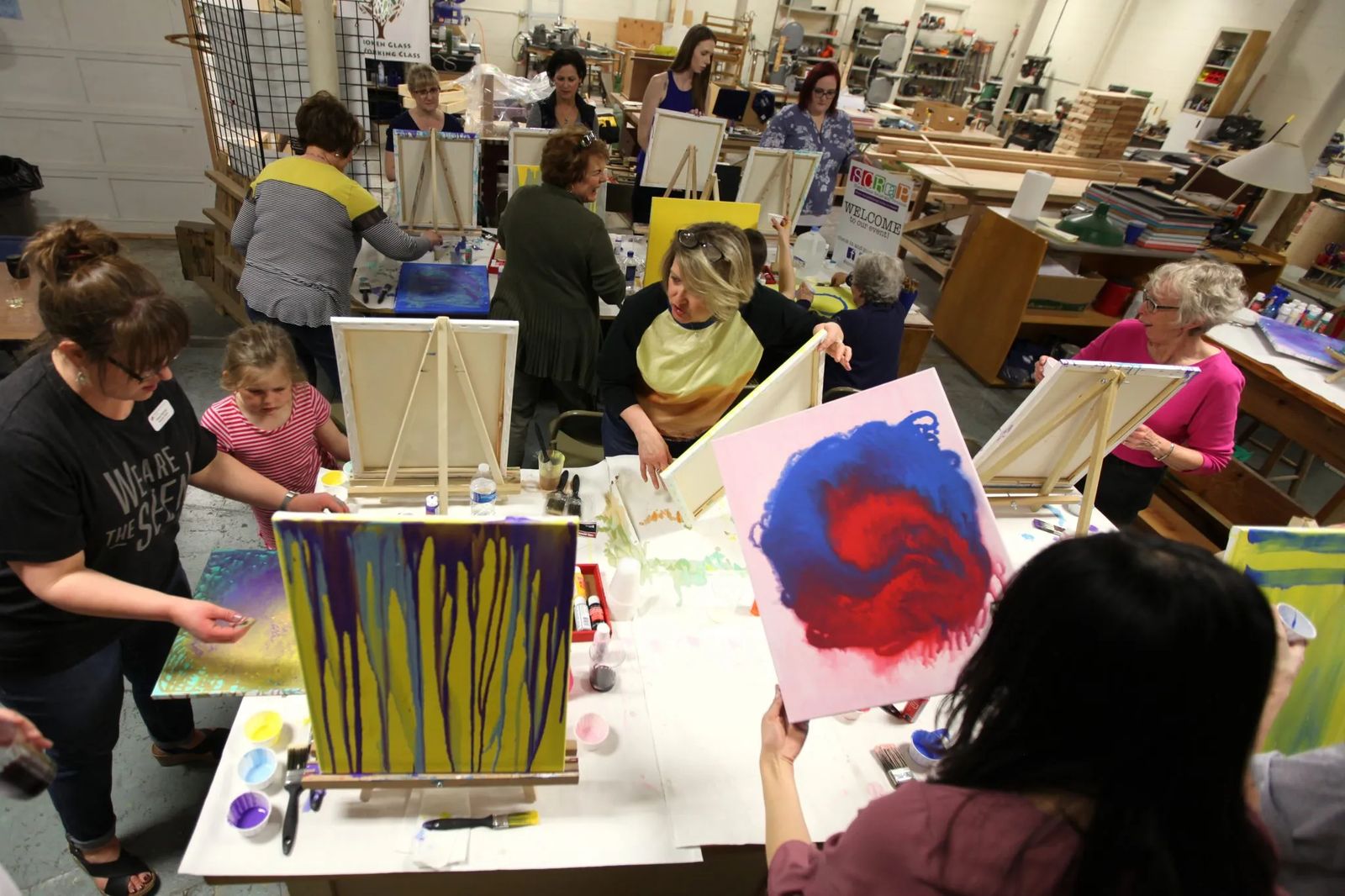
One Man’s Trash…
SCRaP lets creativity flourish
You’ve likely heard this one before: One person’s trash is another person’s treasure. Tami Zemliska knows this to be true. “It is that simple,” she says. “I can love an old milk can that has ‘Dalhart, Texas’ on it because I have a connection to it. That line between junk and something valuable depends on the person.”
Zemliska has surrounded herself with stuff of varying value at SCRaP, a business she founded that stands for “Share Create Reuse and Promote.” Here, you’re likely to run across oddities of the craft world, repurposed treasures (once someone’s discarded junk), raw materials and tools to create everything from pottery to kites to 3D-printed objects—all part of SCRaP’s “maker’s space,” located at 1702 First Ave. N.
“Billings needs this,” says Zemliska, who began SCRaP in 2015 out of necessity. She was creating items to sell at events and repurposing shows but didn’t have enough space in her own home to work, and she didn’t always have the right tools for the job.
“I was looking for studio warehouse space, but it wasn’t feasible,” Zemliska says. Figuring that other crafters were having the same challenges, she decided to create the space that she needed.
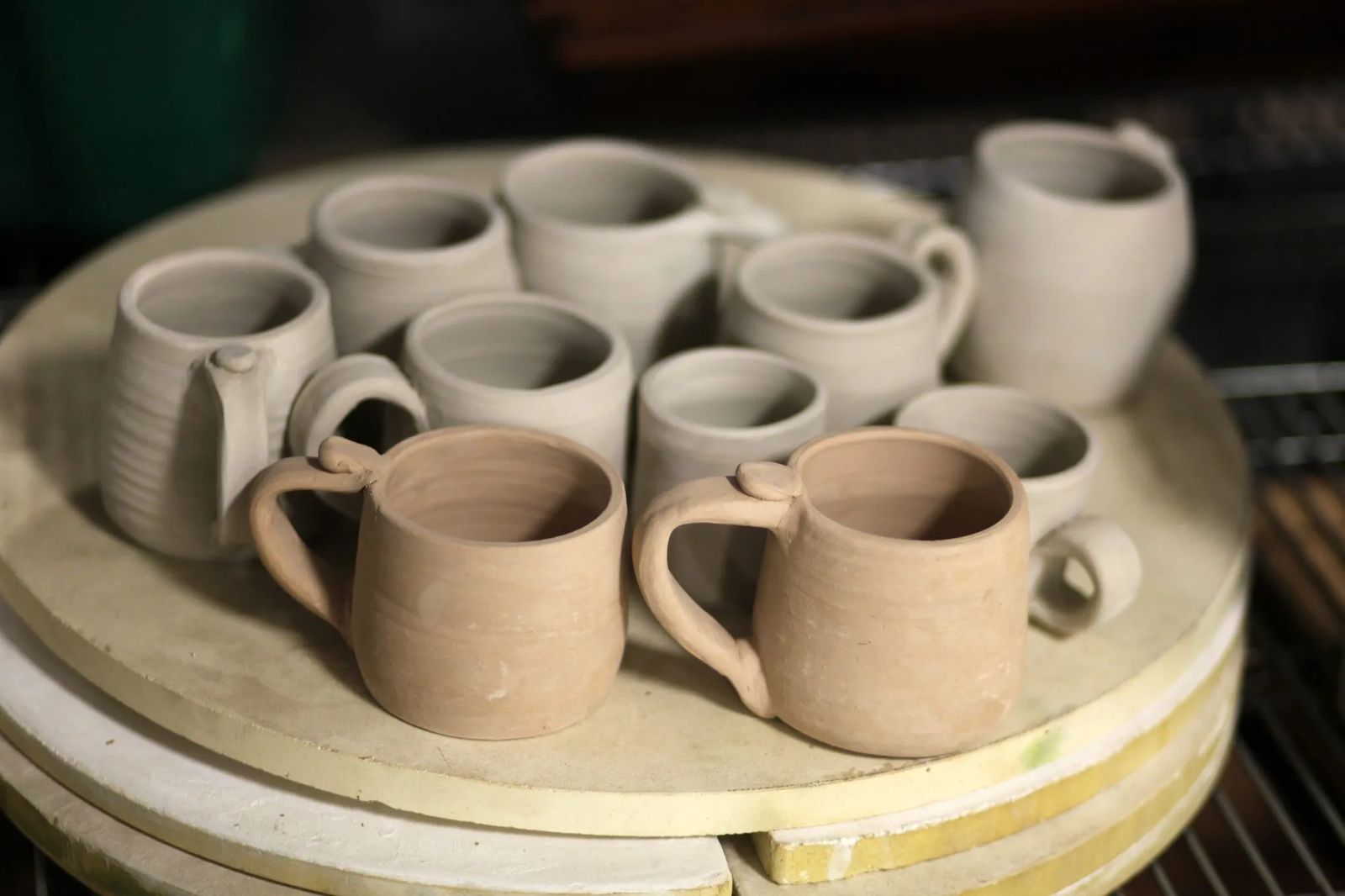
At SCRaP, there’s space to paint, to sew, to saw and build. There’s a pottery wheel, a woodshop, tools to make stained glass, and a half dozen 3D printers for public use. There are supplies for beading, knitting, candle making, scrapbooking, wood burning, decoupage … if you can dream it, you can create it at SCRaP.
“Any do-it-yourself thing that you want to do, you can do it here, and you will have the tools available to do it,” says David McCauley, who oversees marking and development for SCRaP.
SCRaP operates like a gym. You pay a monthly membership and get use of the space. There’s also a day rate for those who don’t want to maintain a monthly membership. “As a member, you have access to the tools and mentorship to help you with the project,” McCauley says.
Zemliska has a passion for helping others find their way into the business of art. “I am driven by being able to help people fulfill their dreams,” she says. “It’s not so much the product that we sell, but more that there needs to be a place where people can commune together.”
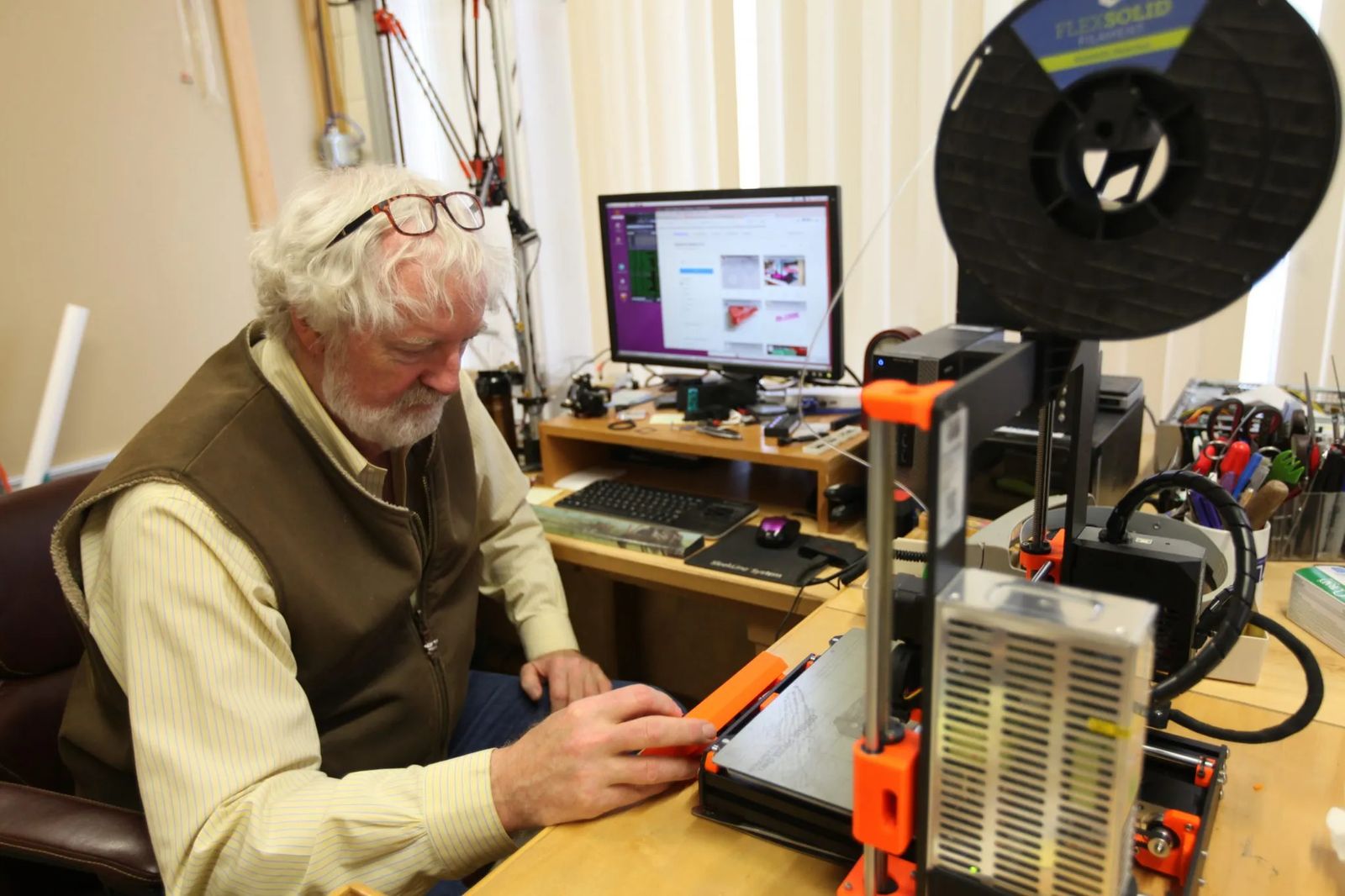
To help fulfill her vision of bringing artists together, Zemliska completed the Montana Arts Council’s Artrepreneur program, an art-centered business development program. As part of this program, she studied teaching the business of art to artists.
“Self-employment is a dream of many people,” she says. “I knew there were people who wanted to do their art and make it a viable, sustainable business.”
Through the services SCRaP offers, Zemliska’s goal is to get artists excited about running their own business and help hone their skills. “I want to support their professional abilities, so they can go downtown and open up a 500-square-foot place to be able to be on their own,” she says.
When Zemliska began the organization, she aligned with SCRAP USA, a national network of creative reuse centers. SCRAP USA, based in Boulder, Colorado, has six locations across the country including reuse centers in Oregon, California, Texas, California, Texas, Maryland, Virginia and Michigan.
Initially, SCRaP followed the national SCRAP business model, but, according to McCauley, their goals did not align. “We needed to expand for our local market,” he says.
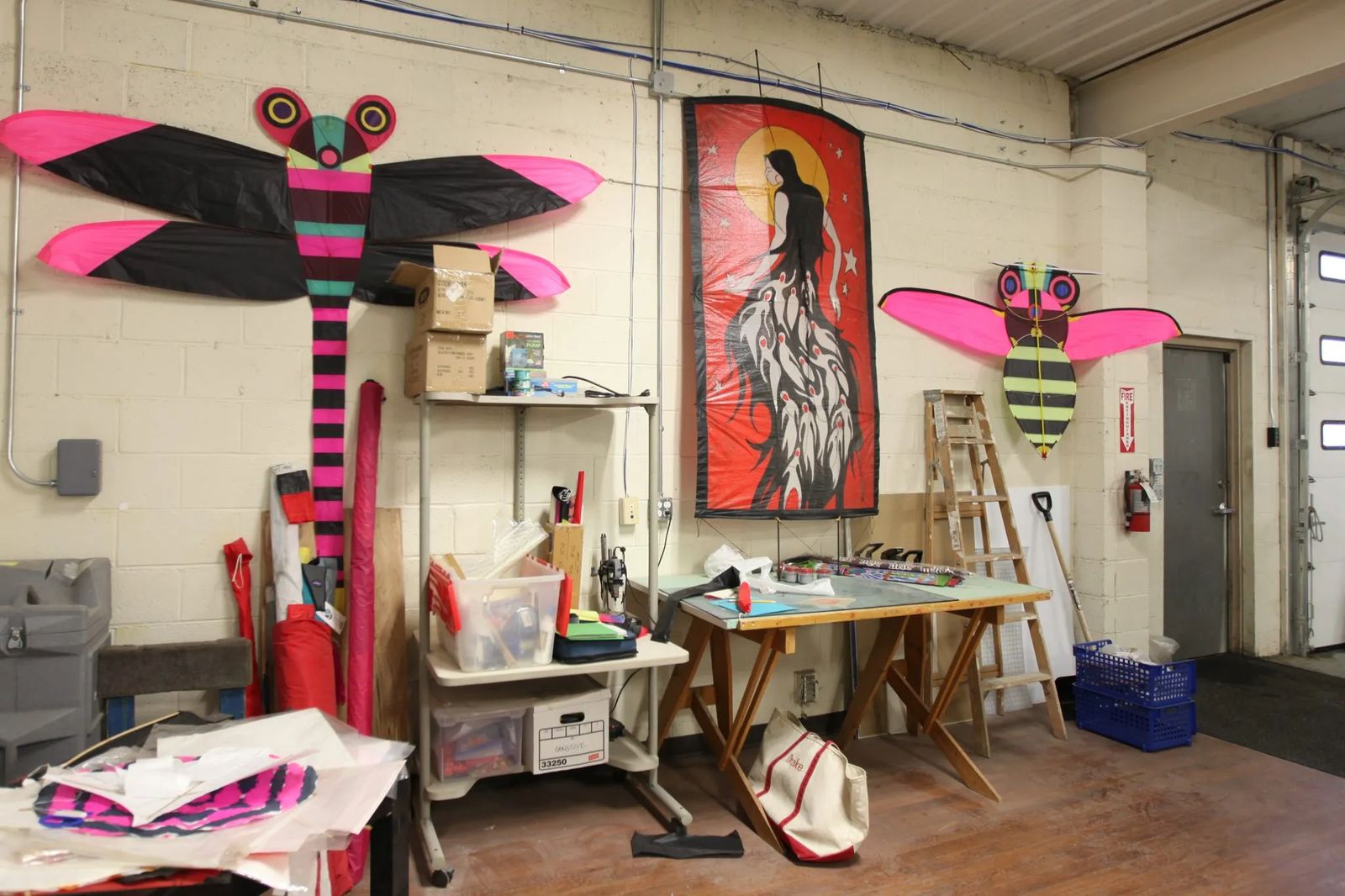
Kelley Carmichael Casey, SCRAP USA’s National executive director, says they had differing perspectives on what constitutes a creative reuse center. “A maker space is not an area of expertise for us, nor is it possible to organize and ensure a maker space within our mission scope,” she says.
Though no longer affiliated with SCRAP, the name stuck. Zemliska has faced her share of challenges finding just the right home for the business and has moved three times since opening in October of 2015. The first location was on South 29th Street in a space leased from the Montana Rescue Mission. In 2016, they relocated to an expansive warehouse at 7 N. 18th St., but that building proved to be more challenging to open than they anticipated, and after extensive delays in the permitting process, they decided to move their public operations to a “Creative Annex” at 1702 First Ave. N., which previously housed Fisher Commercial Flooring.
Plans for the North 18th location are to operate the main floor as the SCRaP store and open studio space for artists to lease on the second floor while maintaining a maker’s space on First Avenue North.
It’s an ambitious plan, with plenty of permitting roadblocks to bring the 1930s warehouse up to code, but Zemliska and McCauley aren’t deterred. SCRaP still maintains a presence on North 18th Street, and they’re working on securing city permits following the required code updates.
“The fundamental thing with art—if people can be creative—their lives are prolonged, their cognitive abilities are expanded, and it’s stress reducing,” McCauley says, “but the majority of people who need art don’t have access to it without some associated costs. You have to buy the tools, you have to have the space, and we have the ability to provide it.”
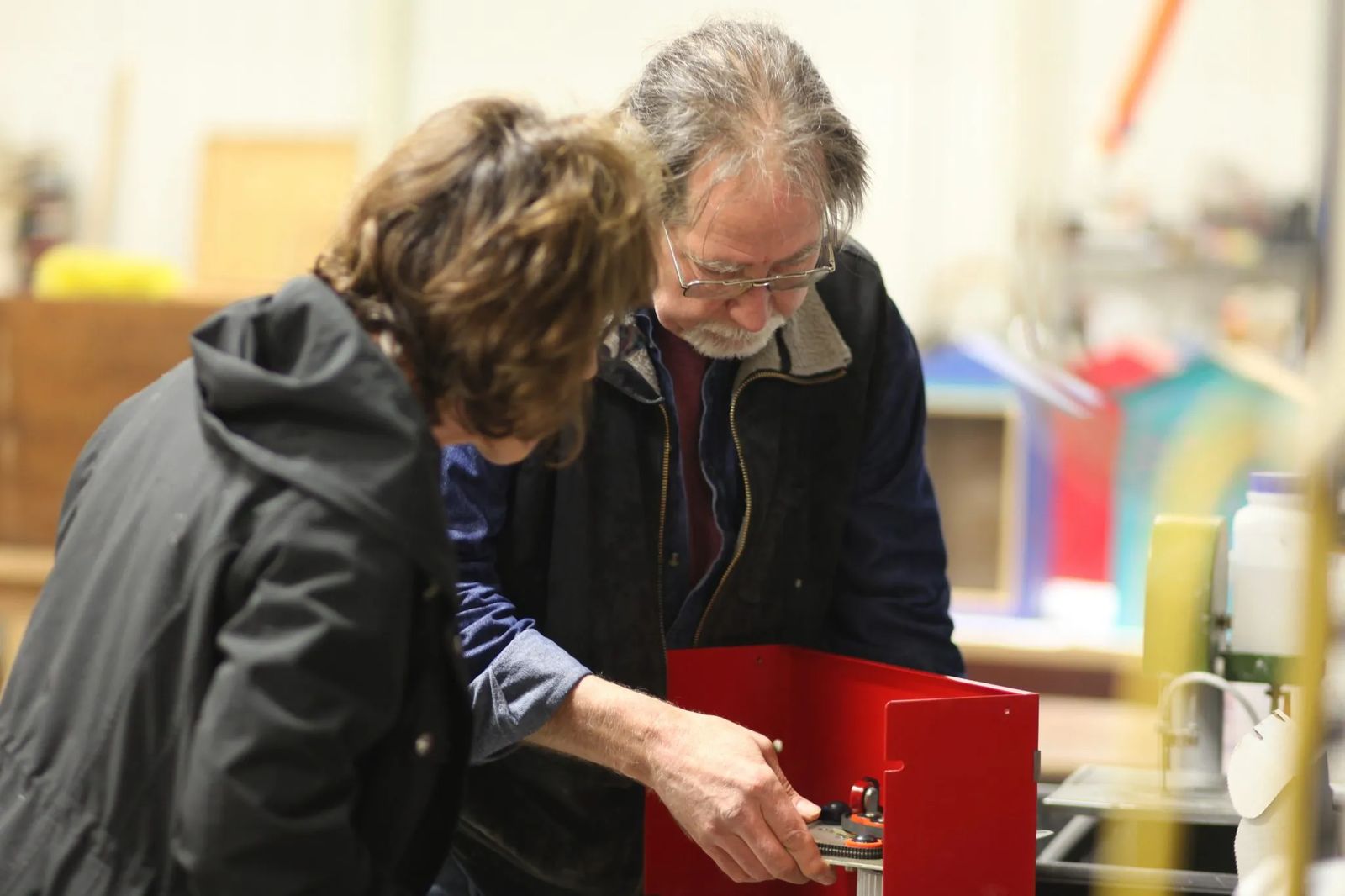
Zemliska envisions SCRaP’s future as a full-fledged creative art center. “Being that art center means we’re able to supply the materials affordably, provide the space that makes it accessible to be able to create, and also being able to provide affordable studio space for artists to get themselves going.”
TO CHECK OUT ALL SCRaP HAS TO OFFER, just click on over to scrapinbillings.com. There, you’ll find details on upcoming classes, things that you can purchase at the maker space as well as information on membership.













